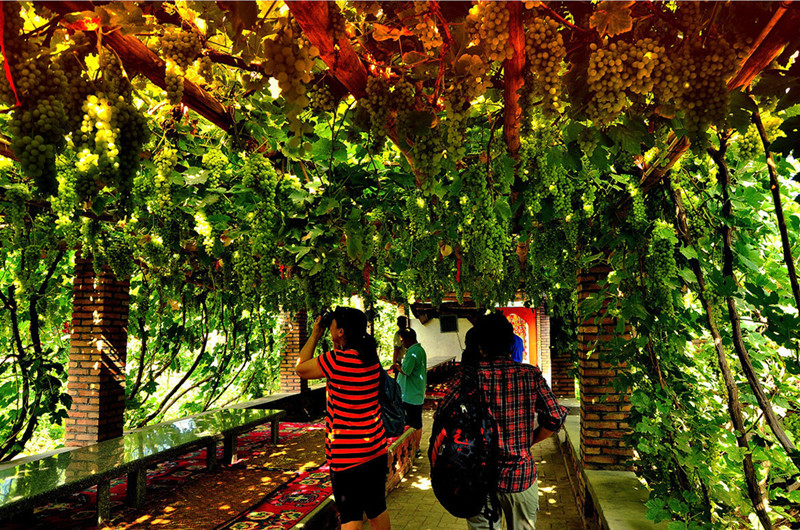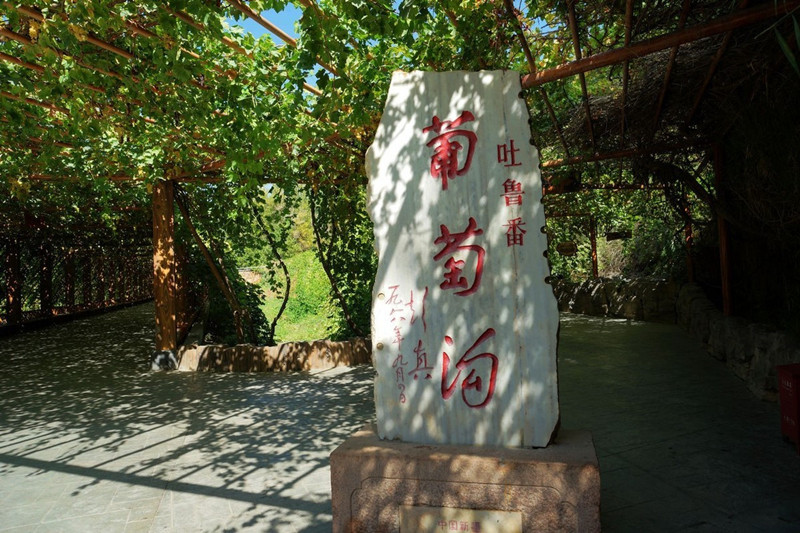Xinjiang Grape Festival
Grape Festival in Turpan on the Silk Road is held in celebration of the 2011-year hisroty of the Silk Road. The Silk Road within China is more than 4,000 kilometers long, and it’s as far as over 2,000 kilometers in the area of Xinjiang. Turpan, as the communication hub of the Silk Road, ranks as a place of strategic importance, and has been one of the political, economic and cultural centers of the western regions of China. The first Grape Festival in Turpan was held in the year 1990, and since then, it has been held annually from late August to early September in Turpan, attracting an increasing number of tourists at home and abroad and contributing .to propagandize Turan as well as its culture. The 19th Grape Festival in Turpan was successfully held from August 26 to September 5 in 2011, and the Grape Festival in 2011 is to be held from August 18 to 28.
Xinjiang Grape Festival is an annual celebration held in Xinjiang Uygur Autonomous Region, China, to showcase the region’s thriving grape industry and promote cultural exchange. Xinjiang, located in the northwest of China, is renowned for its vast vineyards and high-quality grapes, making it one of the country’s leading grape-producing regions. The festival provides an opportunity for locals and visitors alike to celebrate the harvest season, enjoy delicious grapes, and experience the rich cultural heritage of Xinjiang.
Key highlights of the Xinjiang Grape Festival include:
- Grape Harvest Celebrations: The festival coincides with the grape harvest season, allowing participants to witness the grape-picking process firsthand. Visitors can join local farmers in harvesting ripe grapes from the vineyards, experiencing the joy and satisfaction of participating in this agricultural tradition.
- Grape Tasting and Sales: Various varieties of fresh grapes are available for tasting and purchase at the festival, allowing attendees to sample the region’s diverse grape offerings. Visitors can enjoy the sweet, juicy flavors of Xinjiang grapes and purchase them directly from local growers and vendors.
- Grape-themed Activities and Competitions: The festival features a wide range of grape-themed activities and competitions designed to entertain and engage attendees. These may include grape-eating contests, grape-stomping competitions, grape-themed art and craft workshops, and grape-related games and performances.
- Cultural Performances: Traditional music, dance, and cultural performances showcase the rich cultural diversity of Xinjiang’s ethnic groups, including the Uygur, Kazakh, Hui, and Han peoples. Festival attendees can enjoy colorful performances featuring traditional costumes, music instruments, and dance routines that reflect Xinjiang’s vibrant cultural heritage.
- Food and Beverage Offerings: In addition to grapes, the festival offers a variety of local Xinjiang cuisine and beverages for visitors to enjoy. Attendees can sample traditional dishes such as Xinjiang-style kebabs, hand-pulled noodles, lamb skewers, and dairy products, as well as refreshing beverages made from grapes, such as grape juice and wine.
- Agricultural Expositions and Workshops: Agricultural exhibitions and workshops provide insights into Xinjiang’s grape-growing industry, showcasing innovative farming techniques, equipment, and technologies. Experts and agricultural professionals may offer educational seminars and demonstrations on grape cultivation, vineyard management, and wine production.
The Xinjiang Grape Festival serves as a platform for promoting tourism, economic development, and cultural exchange in the region. By celebrating the bounty of Xinjiang’s grape harvest and sharing its cultural treasures with the world, the festival helps to highlight the unique charm and allure of this picturesque region in northwest China.











